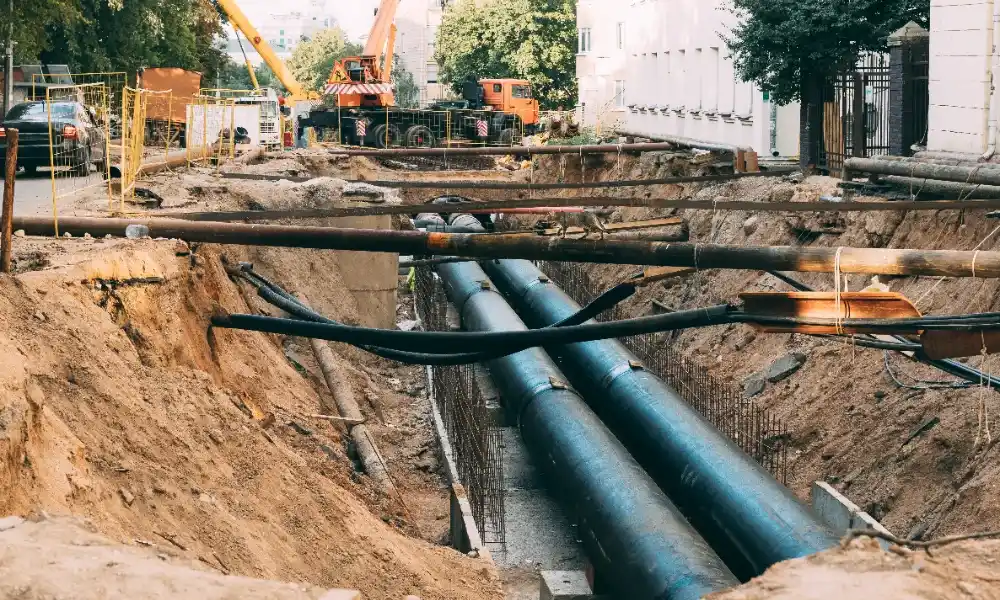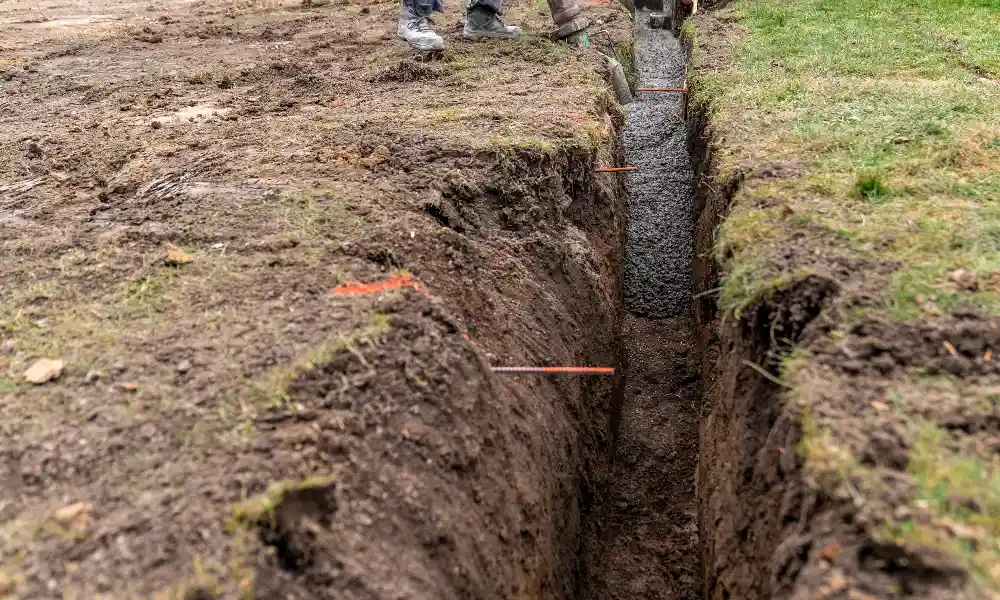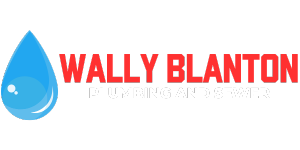
No homeowner wants to deal with a sewer problem, especially when it turns out to be a collapse. It’s more than just a foul smell or a slow drain—it’s a serious plumbing emergency. If left untreated, a collapsed sewer line can result in significant property damage and pose potential health risks.
Knowing the collapsed sewer line symptoms early on can save you time, money, and stress. Whether it’s mysterious wet patches in the yard or toilets gurgling like a haunted house, these are not signs to ignore.
Let’s walk through the most common signs of a collapsed sewer line, what causes them, and how to address the issue properly.
What Are the Symptoms of a Collapsed Sewer Line?
Multiple Drain Clogs Throughout the House
If you notice that more than one drain is clogged—especially all at the same time—that’s a red flag. Is your kitchen sink slow, the bathroom tub not draining, and the toilet backing up? That’s not a coincidence. It may indicate collapsed sewer line symptoms further down your main sewer line.
Slow Drains in Several Fixtures
A single slow drain is often a simple clog. However, when multiple fixtures are slow, especially those closest to the sewer line, such as basement toilets, it’s a warning sign. One of the earliest signs of sewer line problems is reduced flow throughout your plumbing system.
Foul Odors Coming From Drains or the Yard
Foul smells coming from your drains or outside in your yard are often due to trapped sewage. A collapsed sewer line can’t carry waste away, so it builds up and begins to rot. If you regularly notice foul odors, that’s one of the most apparent signs of a collapsed sewer line.
Gurgling Sounds in Toilets or Pipes
Your plumbing should be quiet. If you start hearing gurgling sounds after flushing the toilet or running water, your sewer line may be blocked or damaged. These strange noises are often air trying to escape through water in the pipes—another clear collapsed sewer line symptom.
Sewage Backups in Low-Level Fixtures
Wastewater always flows downhill. That means when your sewer line fails, the lowest fixtures (like basement tubs or ground-level toilets) are the first to back up. If raw sewage is coming back up into your home, there’s no question you’re dealing with signs of a collapsed sewer line.
Unexplained Wet Patches in the Yard
Is there a soggy spot in your yard even though it hasn’t rained? That may be sewage seeping into the soil. Collapsed sewer pipes often leak underground before you notice indoor issues.
Foundation Cracks or Sinkholes
The long-term pressure from leaking sewage can erode the soil under your home. This can lead to foundation cracks or even small sinkholes. These are extreme but severe signs of sewer line problems that need immediate attention.
How Do I Know If My Main Sewer Line Is Collapsed?
Watch for Consistent Plumbing Issues Throughout the Home
One clog is no big deal. However, if you’re repeatedly dealing with plumbing issues throughout your entire house, it’s likely a more serious issue. Pay close attention to patterns.

Monitor for Unusual Noises and Foul Odors
As mentioned earlier, gurgling sounds and nasty smells are classic indicators. If these symptoms persist, it’s time to consider the worst-case scenario.
Inspect Your Yard for Wet Spots or Sinkholes
Don’t ignore soggy lawns or sunken areas in your yard. These are physical signs that your sewer line may be broken underground.
Check for Sewage Backups in Low-Level Fixtures
Backups in basement bathrooms or floor drains typically indicate that the problem is located at or near the main line. This is one of the most reliable ways how to tell if sewer line is broken.
Schedule a Professional Sewer Camera Inspection
This is the only surefire way to know. A plumber inserts a camera into the line to spot the collapse, blockage, or intrusion.
Look for Signs of Tree Root Intrusion
Tree roots naturally seek out moisture and can grow into tiny cracks in sewer pipes. Over time, they can block or completely collapse the line.
What Happens When a Sewer Collapses?
Short-Term Consequences
Health Hazards From Sewage Exposure
Leaking or backing up sewage can introduce bacteria and viruses into your home, posing a health risk. This is a serious risk to both health and hygiene.
Property Damage and Soil Contamination
Water damage, rotten wood, and soil filled with waste aren’t easy fixes. The longer you wait, the worse the cleanup gets.
Long-Term Consequences
Structural Damage to Foundation or Landscaping
If the leak erodes soil under your foundation or garden, the ground can shift. Cracks may appear on walls, floors, and patios.
How Do You Fix a Collapsed Sewer Pipe?
1. Initial Sewer Camera Inspection
A licensed plumber will insert a small camera into your sewer line to inspect the damage. This helps locate the collapse and determine its severity.
2. Damage Assessment and Cost Estimate
Once the issue is found, you’ll get a detailed report and an estimate for the repair options. This may include replacing sections of pipe or more extensive work.
3. Selection of Repair Method (Trenchless vs. Excavation)
Depending on the damage, your plumber may suggest trenchless repair (like pipe bursting or lining) or traditional excavation.
4. Permits and Scheduling
Plumbing repairs often require city permits. Your plumber will handle these and set a timeline that works with your schedule.
5. Repair Execution
The actual repair process can take anywhere from a day to several days, depending on the complexity. Trenchless methods are usually quicker.
6. Final Inspection and System Testing
After repairs, the line is re-inspected and tested to ensure it’s working correctly again.
Can You Fix a Collapsed Drain Without Digging?
Trenchless Sewer Repair Options
Pipe Bursting
This involves pulling a new pipe through the old, broken one. As it moves, it bursts the old pipe and replaces it with a new one.
Pipe Lining
Also known as CIPP (Cured-in-Place Pipe), this method inserts a resin-coated liner into the existing pipe, which hardens to form a new pipe within the existing one.
When Digging Is Still Necessary
If the damage is too extensive or access is limited, traditional digging may be the only option. It’s more disruptive but sometimes unavoidable.
How Long Does It Take to Fix a Collapsed Sewer Pipe?
Factors That Affect Sewer Repair Timeline
Type and Extent of the Collapse
A partial collapse may only take a day. A full collapse could take much longer.
Accessibility of the Sewer Line
Lines under driveways or large trees may take longer due to access issues.
Choice of Repair Method
Trenchless methods are faster. Excavation takes more time and effort.
Weather and Soil Conditions
Heavy rain or frozen ground can delay repair work.
Local Permit and Inspection Delays
City permits and post-repair inspections can extend timelines.
When to Call a Professional for Sewer Line Issues
Scenarios Where DIY Solutions Won't Work
Repeated Clogs and Sewer Backups
If clogs keep recurring, something more serious is likely at play.
Unidentifiable Odors or Noises
Odd smells and sounds in your pipes typically indicate more serious issues.
Foundation or Lawn Damage
This isn’t a plumbing issue—it’s a structural one. Call a pro immediately.
The Role of Professional Sewer Camera Inspection
A camera inspection eliminates the guesswork in diagnosis. It’s quick, safe, and gives you a clear picture of the problem.
Sewer Line Maintenance Tips to Prevent Future Collapses
Best Practices for Sewer System Care
Avoid Flushing Non-Flushable Items
Toilet paper is the only thing meant to go down the toilet. Everything else belongs in the trash.
Schedule Routine Inspections
Regular checks can catch minor issues before they escalate into major problems.
Address Minor Issues Before They Escalate
Don’t ignore slow drains or weird smells. Act early and avoid disaster.
Be Aware of Tree Root Growth Near Pipes
Plant trees a safe distance away from sewer lines, and consider installing root barriers for existing ones.
Need Help With a Collapsed Sewer Line? Contact Wally Blanton Plumbing & Sewer in Antioch, IL
Spotting collapsed sewer line symptoms early can make all the difference. Whether you’re seeing signs of a collapsed sewer line or wondering how to tell if sewer line is broken, professional help is your safest bet. Ignoring these issues only leads to more damage, higher repair costs, and possible health risks.
Let the pros at Wally Blanton Plumbing & Sewer take the stress off your shoulders. Based in Antioch, IL, they offer reliable sewer inspections, trenchless repairs, and emergency services you can count on.
Don’t wait for sewage to flood your basement—contact Wally Blanton Plumbing & Sewer today!
